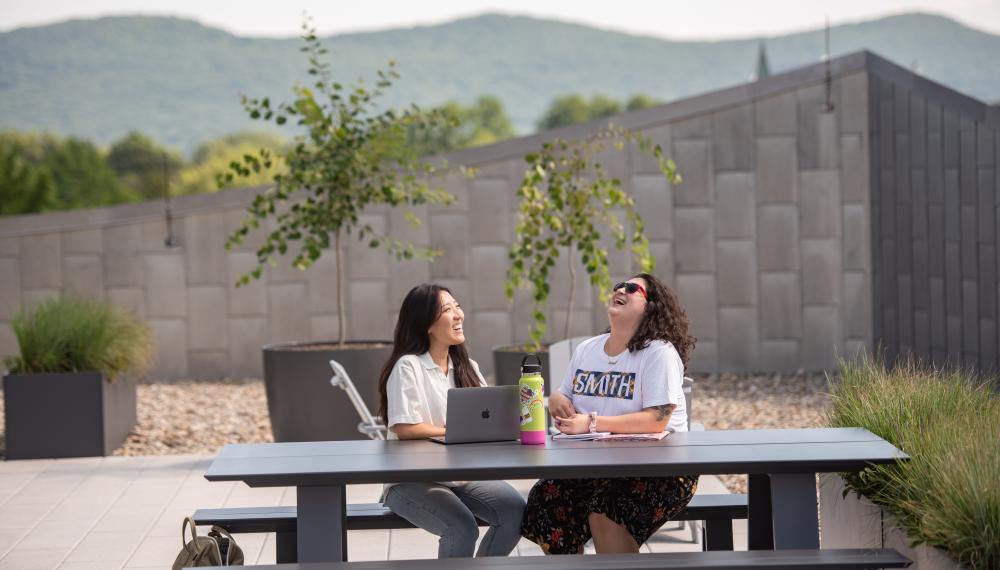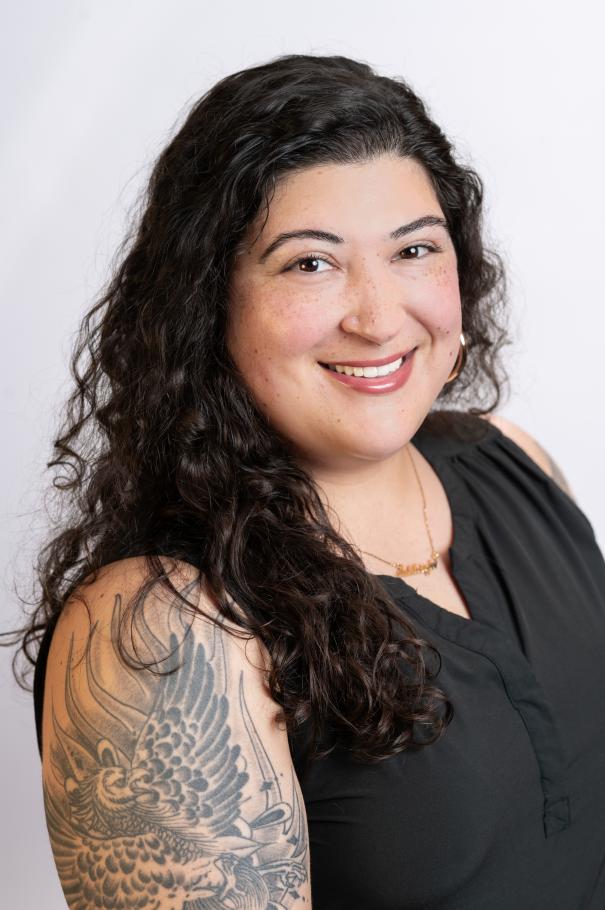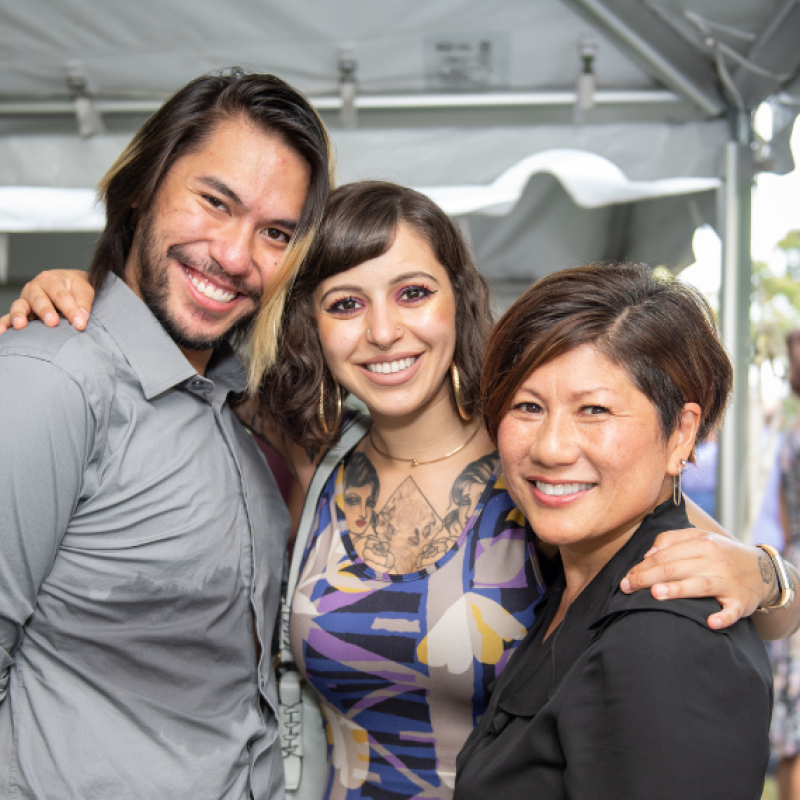
Ashleigh Martinez ’24 first heard about the School of Social Work from a mentor at the nonprofit she ran for five years, who had gone to SSW. “I was years away from getting my B.A., but I went to the website, downloaded an image of SSW logo and put it on my corkboard, thinking, ‘One day, I’m going to go there.’ I forgot about it for a few years, but every time I moved to a new job, I took the logo with me. I still have it.”
Martinez grew up in southern California’s Imperial Valley. “I was on my own from a very young age; I had to work, I didn’t have a lot of guidance,” she said. “It took me eight years to get my B.A.—I was working full time the whole time. For a long time, I felt shame about my journey, but I’ve come to value its uniqueness. There’s no one way to be a student. There are a million different ways to get to where you want to be.”
Right after graduating from California State University, Sacramento with a bachelor’s in Interpersonal Communication, Martinez started at SSW, where she has found “a cohort, people of every age, gender, sex, background, students with families, students juggling school with work, with being caretakers.”

She describes her professors and courses as “amazing,” singling out “Racism in the United States: Interrogating Racialization- Implications for Clinicians of Color ” as particularly meaningful. “In that class, we had deep, difficult conversations. I felt vulnerable, fragile and alive, held,” she said. Studying social welfare policy has also struck a chord. “I love clinical work but have an even deeper love of the macro.”
"There’s no one way to be a student. There are a million different ways to get to where you want to be.”
For her second-year placement, she’s back at the community behavioral health center in the Sacramento metro area where she interned last year. Although it’s unusual to be in the same place both years, the arrangement meant a minimum of disruption for Martinez, who’s still working fulltime. “I’m lucky to have that flexibility. It’s exciting and overwhelming, striking a balance between life and work. Sometimes I procrastinate,” she confessed, with a laugh.
Why social work? “There are a million reasons,” she said, “the list in my head is going wild! It’s so needed. Mental health is as important as physical health, and the two are connected. It’s also about building community, connection and relationships, protecting but also empowering people with marginalized identities.”
Recognizing that social progress comes slowly, Martinez stresses the need to keep pushing. “There’s a fire inside me! Social work shifted away from its radical origins; it has done harm as well as good. We need to rebuild at the systemic level. I think about the big picture every day. The work is hard, and it’s easy to become jaded, which is why community is so important. Change will come from the bottom up. I’m not sure I’ll see it in my lifetime, but I hope I can make a small dent.”


